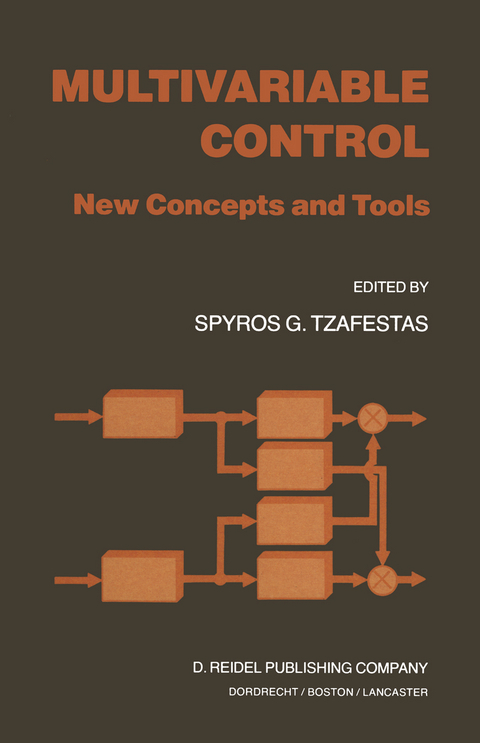
Multivariable Control
Kluwer Academic Publishers (Verlag)
978-90-277-1829-7 (ISBN)
- Titel z.Zt. nicht lieferbar
- Versandkostenfrei
- Auch auf Rechnung
- Artikel merken
I General Topics.- 1 Applications of Algebraic Function Theory in Multivariable Control.- 2 The Theory of Polynomial Combinants in the Context of Linear Systems.- 3 The Occurrence of Non-Properness in Closed-Loop Systems and Some Implications.- 4 Skew-Symmetric Matrix Equations in Multivariable Control Theory.- 5 Feedback Controller Parameterizations: Finite Hidden Modes and Causality.- 6 Decompositions for General Multilinear Systems.- 7 Simplification of Models for Stability Analysis of Large-Scale Systems.- II Uncertain Systems and Robust Control.- 8 Representations of Uncertainty and Robustness Tests for Multivariable Feedback Systems.- 9 Additive,Multiplicative Perturbations and the Application of the Characteristic Locus Method.- 10 A Design Technique for Multi-Represented Linear Multi-Variable Discrete-Time Systems Using Diagonal or Full Dynamic Compensators.- 11 Minimizing Conservativeness of Robustness Singular Values.- III Algebraic and Optimal Controller Design.- 12 Frequency Assignment Problems in Linear Multivariable Systems:Exterior Algebra and Algebraic Geometry Methods.- 13 On the Stable Exact Model Matching and Stable Minimal Design Problems.- 14 Pole Placement in Discrete Multivariable Systems by Two and Three-Term Controllers.- 15 Linear Quadratic Regulators with Prescribed Eigenvalues for a Family of Linear Systems.- 16 Sensitivity Reduction of the Linear Quadratic Optimal Regulator.- 17 Design of Low-Order Delayed Measurement Observers for Discrete Time Linear Systems.- 18 Singular Perturbation Method and Reciprocal Transformation on Two-Time Scale Systems.- 19 Coordinated Decentralized Control with Multi-Model Representation (CODECO).- 20 Design of Two-Level Optimal Regulators with Constrained Structures.- IV Multidimensional Systems.- 21 A Canonical State-Space Model for m-Dimensional Discrete Systems.- 22 Eigenvalue Assignment of 3-D Systems.- 23 Feedback Deadbeat Control of 2-Dimensional Systems.- 24 State Observers for 2-D and 3-D Systems.- 25 Eigenvalue-Generalized Eigenvector Assignment Using PID Controller.
| Erscheint lt. Verlag | 30.11.1984 |
|---|---|
| Zusatzinfo | 504 p. |
| Verlagsort | Dordrecht |
| Sprache | englisch |
| Themenwelt | Informatik ► Theorie / Studium ► Künstliche Intelligenz / Robotik |
| Technik ► Elektrotechnik / Energietechnik | |
| ISBN-10 | 90-277-1829-6 / 9027718296 |
| ISBN-13 | 978-90-277-1829-7 / 9789027718297 |
| Zustand | Neuware |
| Informationen gemäß Produktsicherheitsverordnung (GPSR) | |
| Haben Sie eine Frage zum Produkt? |
aus dem Bereich


